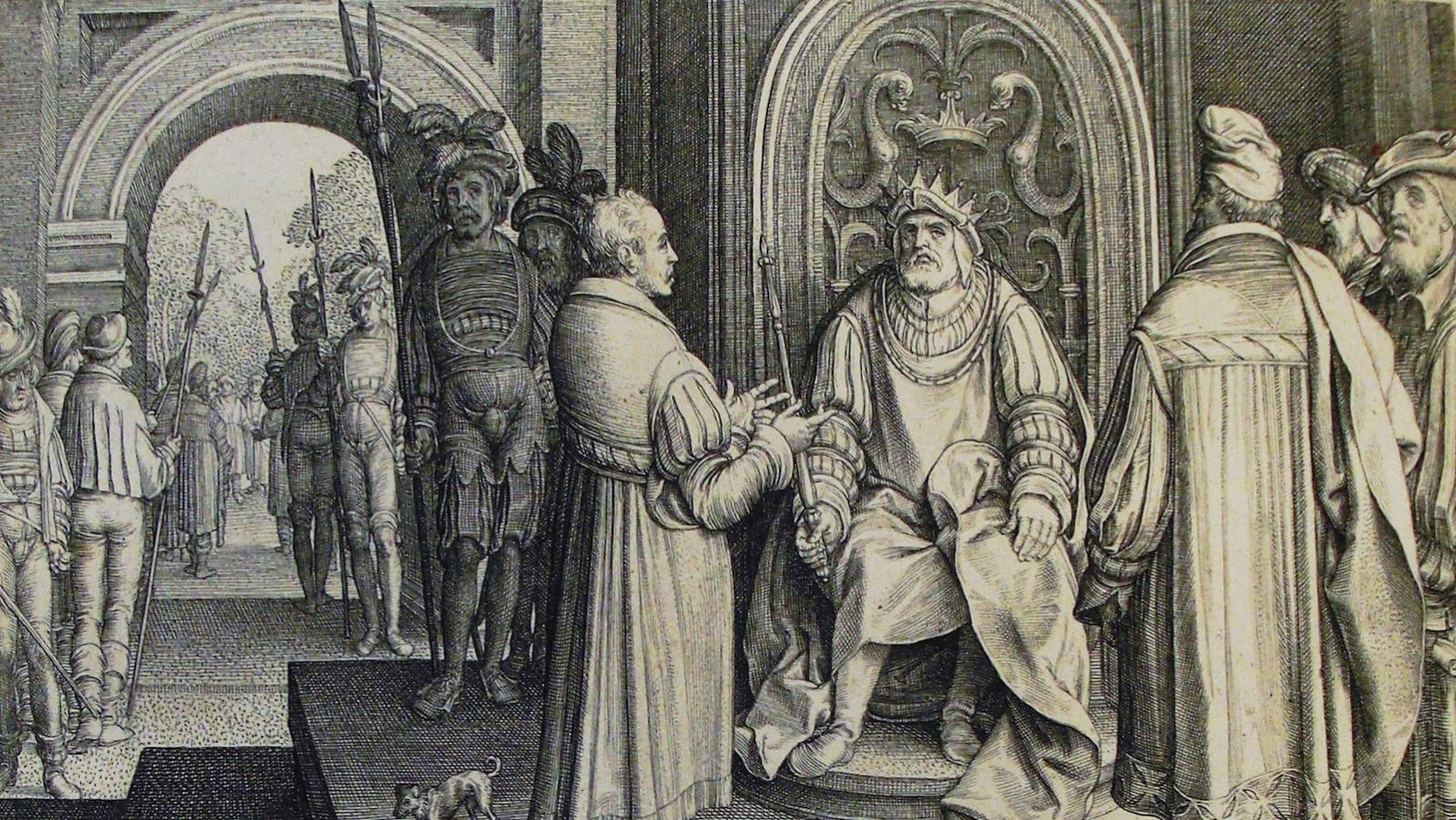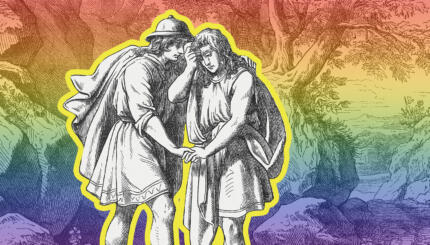Commentary on Parashat Miketz, Genesis 41:1-44:17; Numbers 28:9-15, 7:42-47
At the end of last week’s Torah portion, Joseph is in prison on false charges, after resisting the advances of his Egyptian master’s wife. This week, there is a remarkable change in his situation: He is brought out of prison to interpret Pharaoh’s dreams, which warn of famine in the future. When he proposes a kind of nationalization of the Egyptian economy in order to deal with the upcoming famine, he is made Egypt’s “Prime Minister” in order to implement the plan.
The famine reaches up in to the land of Israel, so Jacob sends his sons down to Egypt to buy food; there they encounter Joseph, who recognizes them, but they think they are dealing with a high Egyptian official.
Joseph sets in motion a plot to unite all the brothers in Egypt — he accuses them of being spies, and demands they bring Benjamin, the youngest, who had been left with Jacob. They go back to Israel and get Benjamin, but Joseph is still plotting a test for them; he plants a cup in Benjamin’s bag, to make it appear he stole it, thus giving him a pretext to take the youngest brother as a servant.
In Focus
“When Jacob saw that there were provisions to be had in Egypt, he said to his sons: ‘Why are you looking [like that]? I hear that there are provisions to be had in Egypt. Go down and provide for us from there, that we may live and not die.'” (Genesis 42:1-2)

Help us keep Jewish knowledge accessible to millions of people around the world.
Your donation to My Jewish Learning fuels endless journeys of Jewish discovery. With your help, My Jewish Learning can continue to provide nonstop opportunities for learning, connection and growth.
Pshat
The famine that Joseph predicted, based on Pharaoh’s dream, has begun, and reaches all the way up to the land of Israel, where Jacob and his family live. He directs the 10 oldest sons to go down to Egypt to buy food, keeping the youngest, Benjamin, at home.
Drash
Jacob asks a bizarre question of his sons: “lama titra-u?” which presents a challenge to properly translate and understand. Hebrew has a form for verbs that makes them reflexive, which means that the action of the verb happens to the subject of the verb, and this case, Jacob’s question is framed in the reflexive form of the verb “to see.” Alternatively, sometimes the reflexive form expresses reciprocal action, two or more people doing the same thing to each other. So what could lama titra-u in a time of famine mean?
Rashi thinks it means “Why do you make yourselves conspicuous?” or “Why do you cause yourself to appear a certain way?” Rashi thinks Jacob is warning his sons not to make the Ishmaelites or the descendants of Esav jealous or resentful, which could happen if they think that the Israelite clan has lots of food while everybody else goes hungry.
This is a sound moral teaching: don’t be so proud that you can’t admit when you’re in trouble, or else you’re just going to cause resentment in those around you. However, I don’t think it fits the situation exactly: I don’t see any other textual hint that the problem here is the perceptions of the other tribes or clans. To me, it seems like Jacob is addressing a family problem.
One commentator, Ibn Ezra (12th-century Spain), partially agrees with Rashi’s reading, but adds that maybe our key phrase means, “Don’t fight with each other.” Now I think we’re onto something — I might read this as “Don’t just stand there and fight each other when there is a famine, we have to act together if we’re going to solve this problem.” This makes sense to me, and would fit with the 10 brother’s previously demonstrated capacity to turn on each other (i.e., the way they did with Joseph).
Following this theme of Jacob addressing the dynamics of the brothers themselves, the commentary I like best comes from the 15th-century Italian rabbi Ovadiah S’forno, popularly known as “the S’forno.” He reads lama titra-u as “Why are you looking at each other?” S’forno is picking up on a basic human tendency to just ignore or deny problems, hoping that they will go away. He adds that, “each brother expected his fellow” to go and get the food they needed.
S’forno’s reading of our verse makes the most sense to me because I can imagine all the emotional dynamics in this situation: There is a famine, which was probably the kind of disaster that didn’t happen suddenly but slowly built up over time, thus allowing each person to hope that somebody else was going to take the lead in addressing the problem.
Furthermore, it wasn’t the kind of problem — yet — that demanded immediate action; one could always hope that maybe tomorrow things will get better, and thus a cycle of denial and procrastination sets in, sometimes right up until the point when it’s too late to take effective action.
We don’t have to look farther than any day’s headlines to see examples of this all-too-human tendency: There are pressing environmental problems that we each hope somebody else will make sacrifices to solve; there are homeless people on the streets; there are children in poverty; there are political, moral and social issues which are crying out for attention. It’s so easy just to “look at each other,” hoping somebody else will emerge with the courage and energy to name and address a problem which we know in our hearts is looming ahead of us.
Yet so often people seem paralyzed, unable or unwilling to take risks for a better world. In the case of the 10 brothers, I wonder if their collective unwillingness to go down to Egypt had to do with a dread of what they might find there.
Going back to chapter 37, we recall that the last the brothers had seen Joseph, they had sold him to a traveling caravan, on its way to Egypt (37:25-28). Could it be that their buried guilt and fear of confronting the past was so great that they didn’t want to go to Egypt, even to buy necessary food, in order to avoid any possible confrontation with the living fact of their awful secret?
Maybe the real problem here is not merely complacency, or laziness, but fear. Fear not only of taking responsibility for oneself, but also fear of the truth. Yet no pressing problem can be solved without dedication to the truth above all; not our family problems, not our social problems, and not our spiritual problems.
We can “look at each other” and evade the truth as long as we like, but eventually reality catches up with us. The other choice is clear: we can join together to “go down to Egypt and provide for ourselves”– that is, take the risk of confronting the truth about whatever problem confronts us, “that we may live.”
Provided by KOLEL–The Adult Centre for Liberal Jewish Learning, which is affiliated with Canada’s Reform movement.



